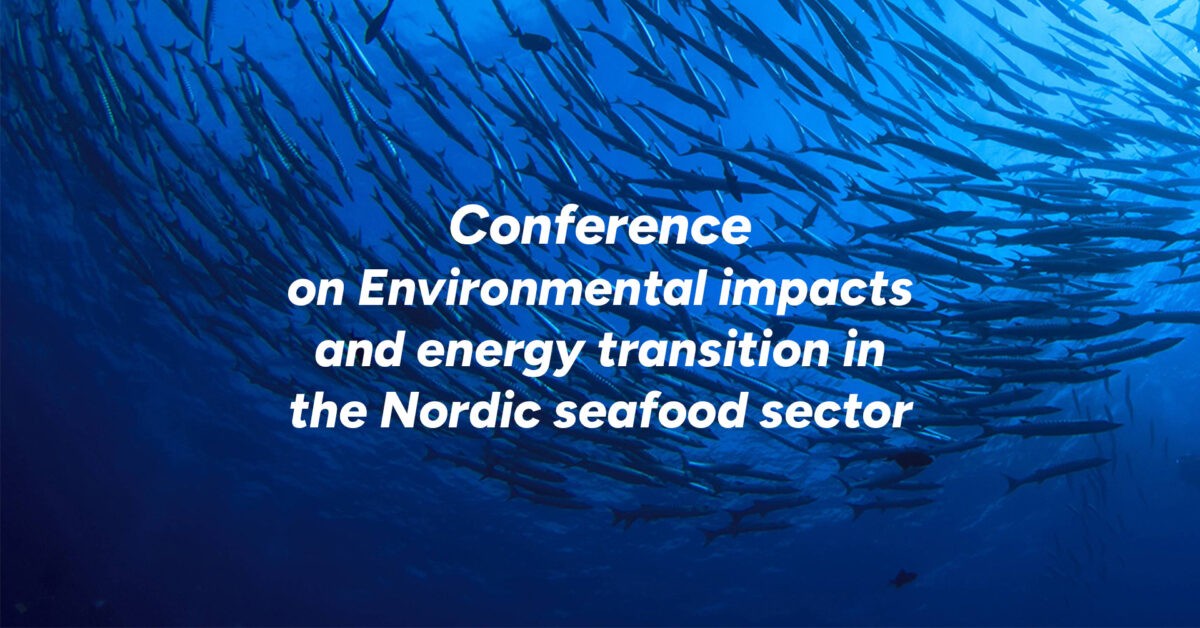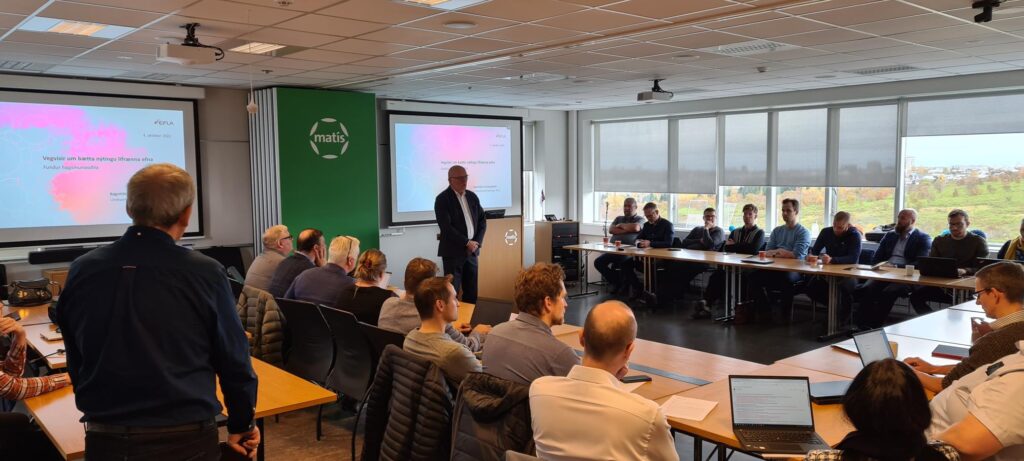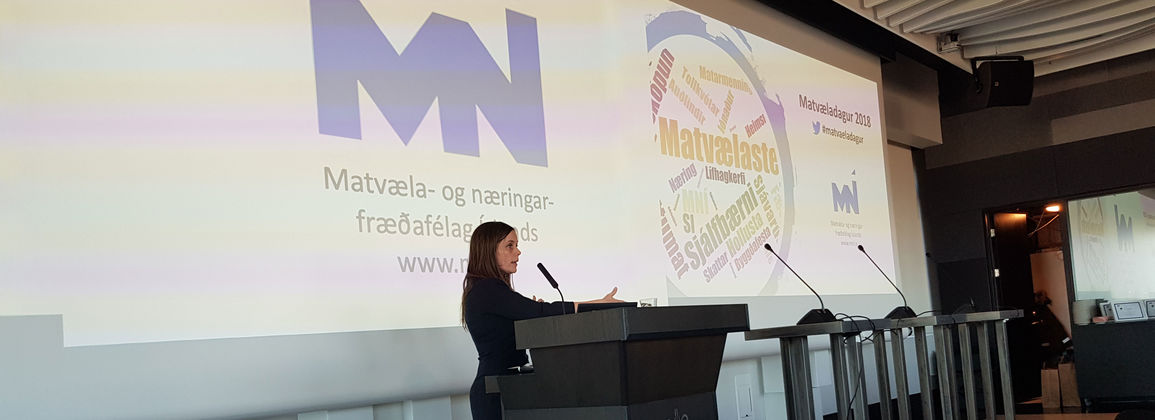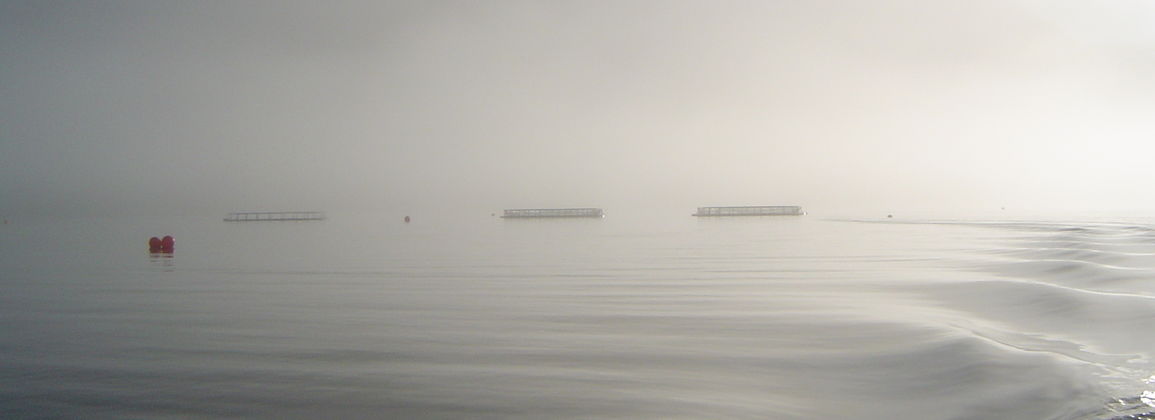On Thursday 15 June, Godfrey Kawooya Kubiriza will defend her doctoral dissertation at the Faculty of Life and Environmental Sciences, University of Iceland. The thesis is entitled: The effects of dietary lipid oxidation on farmed fish.
When does this event start: June 15, 2017 - 1:00 p.m.
Event location: Main building
Further location: Celebration hall
Opponents are dr. Anders Kiessling, Professor at the Swedish University of Agricultural Sciences, Department of Animal Nutrition and Husbandry, Sweden, and Þórarinn Sveinsson, Professor at the University of Iceland School of Medicine.
Supervisors are Helgi Thorarensen, professor at Hólar University, and Sigurður Snorrason, professor at the Faculty of Life and Environmental Sciences. Other members of the doctoral committee are Ólafur Sigurgeirsson, lecturer at Hólar University, Anne M. Akol, Makerere University in Uganda, Jón Árnason, specialist at Matís, and Tumi Tómasson, director of the United Nations University's Fisheries School.
Dr. Anna Dóra Sæþórsdóttir, dean and professor at the Faculty of Life and Environmental Sciences at the University of Iceland, will lead the defense, which will take place in the Celebration Hall of the main building, starting at 13:00.
Summary of study
Although conditions for aquaculture in Uganda and East Africa are good, aquaculture production in the region is still relatively low. The main obstacle to the further growth of aquaculture is the lack of cost-effective feed, which is produced from raw materials from the area. In the doctoral project, experiments were performed that address this problem: 1) By defining the ideal setup of growth experiments (the most suitable number of fish and repetitions of treatments) and the best statistical methods for analyzing the data. 2) The effect of development on fish oil in fish feed was investigated. The results indicate that evolution does not affect the growth of Nile borer (Oreochromis niloticus) in ponds rich in algae, rich in antioxidants. 3) The antioxidant activity of ethoxiquin (EQ), which is widely used in fish feed, was compared with new antioxidants: rosemary oil (RM; Rosmarinus officinalis) and seaweed (BH; Fucus vesiculosus). The results suggest that RM can prevent the development of fish oil as well as EQ as well as encourage better fish growth than EQ or BÞ. (4) New raw materials for fish feed produced in Uganda were tested. The results indicate that it is economical to use the shrimp Caradina nilotica, which is a by-catch from fishing in Lake Victoria, in feed, thus replacing fishmeal from Rastrineobola argentea, which can be used directly for human consumption. The results of these experiments are an important contribution to the further development of aquaculture in Uganda and East Africa, in particular the production of feed for farmed fish.
About the doctoral dissertation
Godfrey Kawooya Kubiriza was born on August 7, 1979 in Uganda. His parents are Yekosofati Kawooya Kayizzi and Khezia Nakiryowa from Kikwayi in Uganda's Mukono province. Godfrey is the ninth of twelve siblings. He is an assistant professor at Makerere University in Kampala.
Godfrey received his primary and secondary education at Bishop's Central Primary School, Namakwa Senior Secondary School and Bishop's Senior School in Mukono. In 2004, he completed his B.Sc. degree in Fisheries and Aquaculture from Makerere University. He graduated with honors in 2009 from the University of Malawi, Bunda College, which was supported by the Icelandic International Development Agency. From 2009 to 2010, Godfrey was a grant recipient of the United Nations Fisheries Academy and specialized in aquaculture at Hólar University. His supervisors in Iceland were Helgi Thorarensen and Ólafur Sigurgeirsson at Hólar University and Albert K. Imsland at Akvaplan Niva. Godfrey's final project on Hólar dealt with the organization of experiments and statistical processing in aquaculture research.
Godfrey began his doctoral studies at the University of Iceland in 2011 with a scholarship from the Fisheries Academy. The final project at Hólar was part of the doctoral project. Godfrey's doctoral dissertation deals with a variety of topics, in particular the effects of fat degradation in feed on farmed fish and ways to avoid evolution, as well as statistical processing in growth experiments. Godfrey's research is an important contribution to the further development of aquaculture in Uganda and East Africa.





